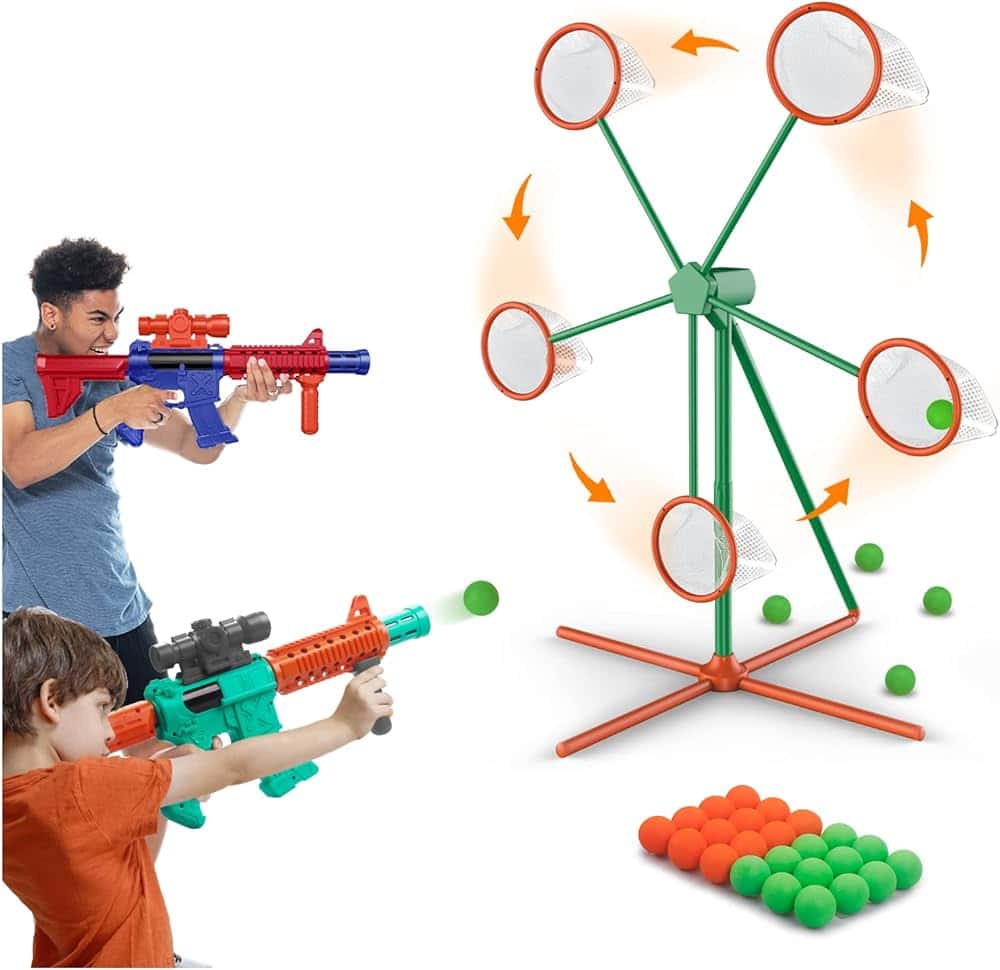Engaging 6-7 Games for Growing Minds: A Parent’s Guide to Educational Play
Welcome to our fun-filled guide dedicated to finding the perfect games for your spirited 6 to 7-year-olds! At this age, children are buzzing with energy, curiosity, and a readiness to learn. As parents, you want to channel that incredible energy into activities that are educational, engaging, and, above all, fun!
But in a world brimming with options, how do you pick the right games? Those that not only entertain but also enhance essential skills such as critical thinking, problem-solving, and social interaction? Well, we’ve taken the guesswork out of the equation for you!
Why Choose Educational Games for Your Child?
Educational games are a fantastic way to merge playtime with learning. They are specially designed to balance the fun factor with educational outcomes, helping children to develop cognitive skills, fine motor skills, and emotional intelligence. These games offer a hands-on, interactive experience that traditional learning methods often lack.
We’ve curated a selection of games that promote different aspects of your child’s growth, including language development, mathematical skills, artistic creativity, and scientific curiosity.
Board Games That Teach and Delight
Count Your Chickens – This cooperative board game is perfect for teaching young children the concept of numbers and counting. As they help Mother Hen collect her chicks, kids learn to work together—a key social skill!
Zingo! – A fun twist on classic Bingo, Zingo! boosts language and matching skills. It’s also fantastic for developing your child’s quick-thinking abilities and concentration.
The Magic Labyrinth – A memory maze game that requires players to navigate a hidden labyrinth to find magical objects. It’s great for improving memory and spatial orientation.
Not only do these games entertain, but they also foster a love for strategy and problem-solving from an early age.
Creative and Artistic Games for Kids
Story Cubes – Roll the cubes and let your child’s imagination soar as they concoct stories based on the images that come up. This game enhances creativity and storytelling skills, nurturing future writers and orators!
Master Kitz – A Kidzaw art game that brings famous paintings to life. This game encourages the little ones to understand and appreciate art through hands-on experience, promoting their creative expression.
Creative games like these help kids express their emotions and develop an appreciation for the arts, instilling a sense of culture and expression that will serve them throughout their lives.
Educational Video Games for Digital Natives
In an increasingly digital world, familiarizing kids with technology while they learn can be beneficial. But it’s crucial to choose educational video games that are age-appropriate and constructive.
Math Blaster – A space-themed game that strengthens math knowledge. Whether adding asteroids or subtracting space debris, your child will polish their math skills all while defending the galaxy!
Bookworm Adventures – A word-building quest that has kids crafting words to defeat mythical foes. Expanding their vocabulary and spelling skills has never been so adventurous!
Tapping into the vast world of educational video games can motivate your little one to build on different subjects while navigating the digital realm responsibly.
Ready to empower your child’s learning journey with games suitable for the 6-7 age group? Embrace the interactive and playful side of education. Above all, remember that playing games with your child is not just about instructing – it’s about connecting, sharing laughs, and making memories. Stay tuned for our next section where we’ll dive into the specifics of how these games can support various developmental milestones and give you hands-on tips to get the most out of game time!
Get those game faces on, and let’s make learning an adventure that your child will cherish!

5 Essential Tips for Parents Preparing for Engaging 6-7 Games
Navigating the world of children’s games can be as thrilling as it is daunting. Here are five golden nuggets of wisdom to help you prepare for game time with your 6-7-year-olds:
1. Understand Your Child’s Interests and Abilities
Every child is unique. Pay close attention to your child’s interests and skill levels to select games that resonate with them. A space-obsessed child might find joy in a game like Math Blaster, while a little storyteller might light up with Story Cubes.
2. Mix Learning with Fun
Look for games that cleverly blend educational content with fun gameplay. Your goal is to find games that don’t feel like homework but still offer a learning experience. It’s the stealthy way of boosting knowledge!
3. Safety First
When choosing board games, ensure that the pieces are age-appropriate and pose no choking hazards. For video games, check ratings and content to ensure they’re suitable for young children.
4. Promote Social Skills Through Cooperative Play
Games that encourage teamwork, such as Count Your Chickens, are excellent for teaching your child about cooperation and fair play. Look for opportunities where your child can learn to share, take turns, and work with others.
5. Encourage Independence But Be Available
While it’s vital to be involved in your child’s play, it’s equally important to encourage independent play. Give your child space to explore a game on their own but remain available to help if they need guidance.
Armed with these foundational tips, you’re now ready to dive into the world of educational games for your blossoming 6-7-year-old. Remember, the ultimate goal is to foster a love of learning and create joyous memories that will last a lifetime!
Supporting Developmental Milestones Through Games
Games are not just for fun; they play a critical role in supporting developmental milestones for your 6-7-year-olds. Here’s a closer look:
Physical Dexterity
Board games that require manual manipulation, such as moving pieces or stacking, help to refine fine motor skills and hand-eye coordination.
Cognitive Advancements
Puzzles and strategy games promote problem-solving skills and enhance memory. These types of games stimulate cognitive development by encouraging children to think critically.
Emotional and Social Growth
Playing games with peers or family members teaches children about empathy, taking turns, and the importance of social interactions. Games that include a narrative or role-playing element can also help children to process and express their emotions.
Language and Literacy
Word games and storytelling activities build vocabulary and comprehension. These games can also spark a love for reading and writing by making language fun.
Numeracy
Games with a math component, like number-based board games or digital math challenges, make arithmetic engaging and help solidify basic math concepts in a child’s mind.
As you choose games for your child, consider how they can address these milestones. A well-rounded gaming library will consist of games that touch on multiple areas of development, ensuring your child’s growth is as comprehensive as its playtime.
By integrating these game-based learning strategies into your child’s daily routine, you set the stage for a bright and engaging academic future. So go ahead, pick out those games that will spark joy and curiosity in your little one, and watch them thrive as they play and learn!
Keep in mind that the key to successful game-based learning is balance. Don’t hesitate to mix up the types of games and encourage a variety of playstyles. As you play alongside your child, you’ll not only witness their development but also strengthen your bond with every game session. It’s time to play, learn, and grow together!
See more great Things to Do with Kids in New Zealand here. For more information see here
Disclaimer
The articles available via our website provide general information only and we strongly urge readers to exercise caution and conduct their own thorough research and fact-checking. The information presented should not be taken as absolute truth, and, to the maximum extent permitted by law, we will not be held liable for any inaccuracies or errors in the content. It is essential for individuals to independently verify and validate the information before making any decisions or taking any actions based on the articles.




